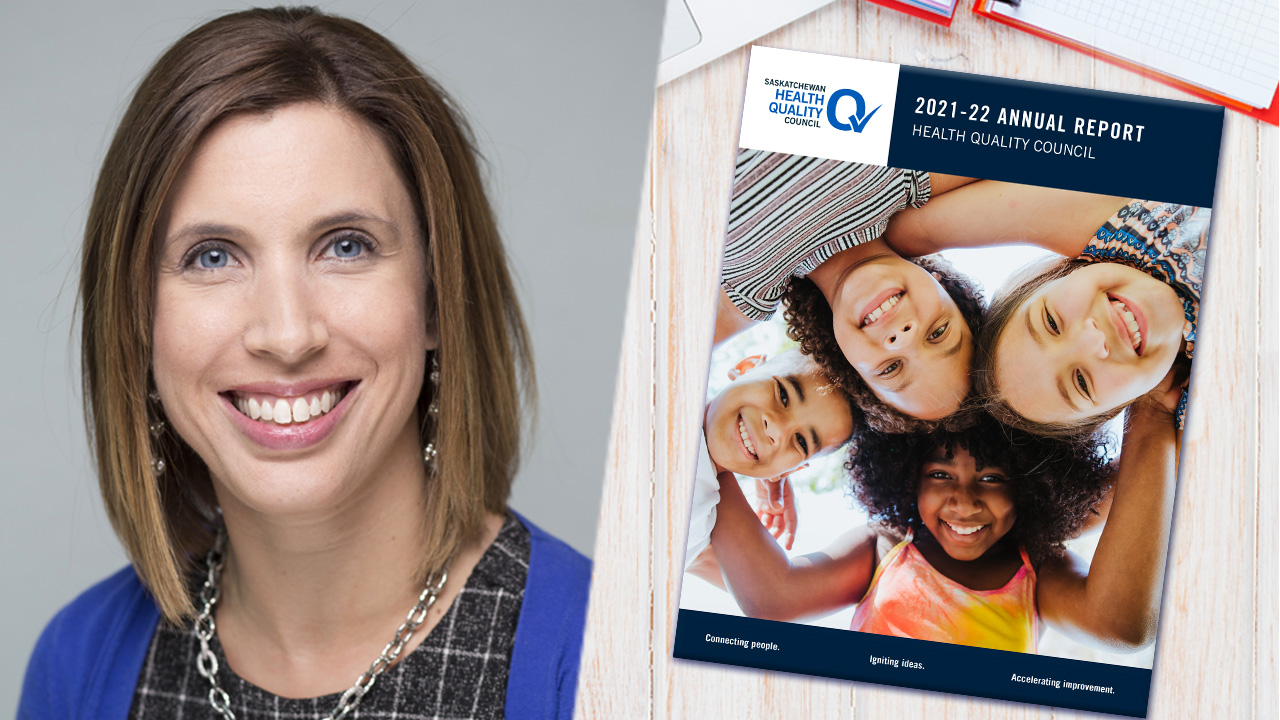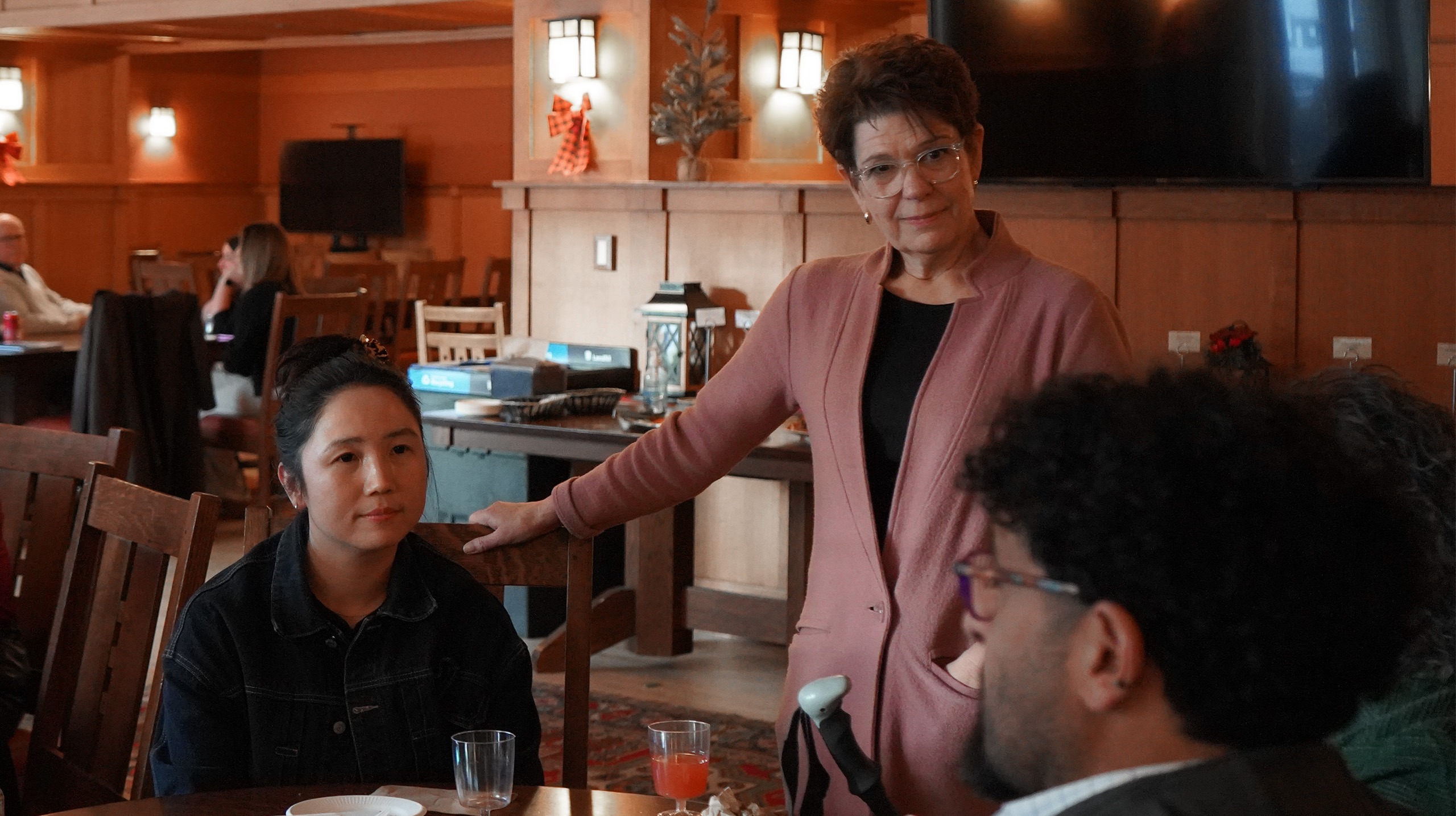Being nimble and agile to meet changing needs and priorities was again a theme of our work this year. Despite the challenges of the COVID-19 pandemic, we were able to make progress on initiatives to support improving team-based care in the community, mental health and addictions services, generating evidence for decision-making and planning, and building capability for improvement.
Our strategic priorities
This year, we continued to make progress on our strategy to enhance First Nations and Métis health and to address the social determinants of health through a focus on mental health and wellness for children, youth, and their families. In October, HQC joined the Saskatchewan Alliance for Youth and Community Well-being (SAYCW), a partnership between health, education and other community stakeholders dedicated to improving the health and well-being of the Saskatchewan population. We worked with SAYCW to kick off the Youth Mental Health Sharing and Learning Community in March, an interactive virtual space where individuals and organizations can build relationships with others working on youth mental health, share ideas, share the progress of current work, and engage in a process of collective learning. This community will continue to grow to meet members’ needs.
We expanded the work, begun in the 2020-21 fiscal year in partnership with the Federation of Sovereign Indigenous Nations (FSIN), to examine suicide and self-harm in First Nations people using health administrative data. The aim of this analysis is to better understand trends and disparities, so that actions can be taken to better provide services and supports to prevent suicide and promote life.
Research highlights
Our research and analytics teams generated valuable evidence and insights to inform decision making and planning. We contributed our research and analytic skills to 10 patient-oriented research projects on topics including: end of life care in lung cancer and COPD; effects of fluoroquinolone medications on the eyes; and utilization of cough and cold medications containing opioids in children. Our team also contributed to a national study of the impact of COVID-19 on seniors and their caregivers living with dementia, results of which will be released early in the 22-23 fiscal year. With support from our health system partners and federal funding, we also developed processes to streamline data sharing and access for patient-oriented research.
QI training: Creating a culture of continuous improvement
Our Learning Programs team continued to deliver high quality learning programs to build capability for improvement. Cohort 5 of the Clinical Quality Improvement Program launched this year, with 12 clinicians participating to build their skills to lead improvement. The Quality Improvement Learning Collaborative continued to support primary care and specialist physicians in the Prince Albert and Shellbrook area to improve their practices. We also completed the first cohort of the Community QI Collective, an applied program focused on building capacity for quality improvement that provides resources, coaching, and peer support to help community-based organizations make improvements to create a better experience for their clients and staff. A second cohort was launched in March, with a third to be launched in the 2022-23 fiscal year.
Valuable data for family physicians
Version two of BestPractice Primary Care Panel Reports was released in June 2021, and included several updated and new indicators, as well as an additional education program to help physicians understand and act upon the results. The reports were developed by HQC with support from the Saskatchewan Medical Association, the Saskatchewan College of Family Physicians, the Department of Academic Family Medicine at the University of Saskatchewan and eHealth Saskatchewan.
Truth and Reconciliation
To further our commitment to improving our cultural competency and addressing the Truth and Reconciliation Commission Calls to Action, HQC completed the following actions this year:
- Call to Action #18 – Acknowledging Indigenous topics, including impacts of systemic racism and intergenerational trauma, on our monthly webinar series QI Power Hour.
- Call to Action #19 – Partnered with FSIN to complete an analysis of suicide and self-harm among First Nations people in Saskatchewan, including disparities between First Nations and non-First Nations people.
- Call to Action #23 – Cultural Competency training offered to all staff; Providing OCAP® training for research and analytics staff.
- Call to Action #57 – Quarterly Indigenous Learning Series sessions for all staff; Initiated a Cultural Advisory Committee to provide guidance to our policies and projects; Organizational recognition of culturally important dates and events.
- Call to Action #80 – HQC will recognize the National Day for Truth and Reconciliation as a statutory holiday beginning September 30, 2022.
Staying safe in challenging times
Maintaining this level of agility during a time of uncertainty demonstrates resilience and a commitment to continuous improvement. I want to express my appreciation to our staff for continuing to come together each day to make health and health care better and safer for the people of Saskatchewan. I am proud of you as individuals for your resilience, your hard work, and your continued service to this organization and to this province.
We are also so very grateful to our health system colleagues for their tireless efforts to keep us all safe throughout these challenging times. Thank you.
Tracey Sherin
CEO, Health Quality Council




